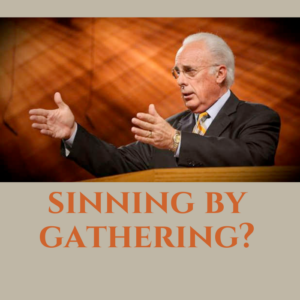We’re live! In this episode, Michelle and Amy take questions from a live audience of women attending the Cruciform 2020 Conference, in their “Glad You Asked” series. (Check them all out here!)
Here are the questions:
-
- “I came from a New Apostolic Reformation church and now feel a disconnect between learning theology and feeling or experiencing God, and need advice.”
- “What do you say to a friend or loved one who is a female pastor?”
- “As a woman, how would you address discernment issues with your church?”
- “How do you address those who say they hear God personally outside of Scripture?”
- “Who is your favorite woman in the Bible?”
- “How does one find time to fit Bible study in a busy schedule?”
- “Is there a place in the Bible that says if you can’t follow man’s law, you can’t follow God’s law?”
- “Why it’s OK to participate in non-sinful parts of Halloween (like trick or treat or a church fair) but it’s not OK to do yoga?”
Resources for this episode:
YouTube video of this episode, recorded at Cruciform Conference
What your church needs to know about the New Apostolic Reformation (NAR) – Amy Spreeman, Berean Research
What is the New Apostolic Reformation – Michelle Lesley- Discipleship for Christian Women
How to talk to your church leaders about false teachers – A Word Fitly Spoken Podcast
The Mailbag: How should I approach my church leaders about a false teacher they’re introducing? – Michelle Lesley- Discipleship for Christian Women
Searching for a new church? – Michelle Lesley- Discipleship for Christian Women
Nine Helps for Starting and Sticking to Daily Bible Study – Michelle Lesley- Discipleship for Christian Women
Women Preaching the Gospel? – A Word Fitly Spoken Podcast
Rock Your Role: Jill in the Pulpit – Michelle Lesley- Discipleship for Christian Women
Christians and Yoga? – Amy Spreeman, Berean Research White Paper
My Response to “Holy Yoga” – Amy Spreeman
When Halloween Comes Knocking – A Word Fitly Spoken Podcast


